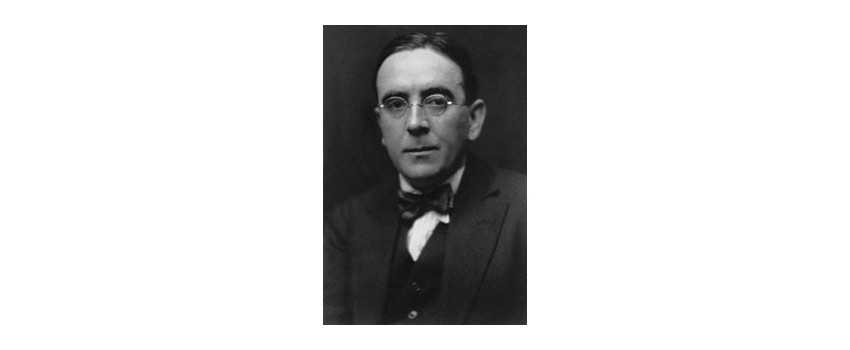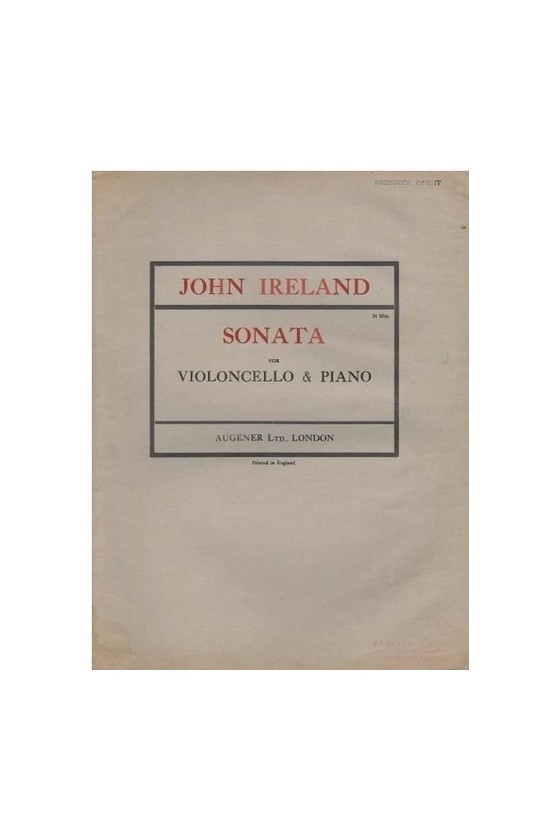Ireland, John
John Ireland (13 August 1879 – 12 June 1962) was a composer of great renown, and his works have left an indelible mark on the world of classical music. His style is often characterized by its haunting melodies and intricate harmonies, which have captivated audiences for over a century.
Early Life and Musical Education
John Ireland was born in Bowdon, Cheshire, England, in 1879. He grew up in a musical family, and his father was an organist and choirmaster. Ireland began to show an interest in music at a young age, and he started piano lessons when he was just four years old. By the time he was a teenager, he had already composed several pieces of music.
In 1893, Ireland won a scholarship to study at the Royal College of Music in London. During his time there, he studied composition with Charles Villiers Stanford and piano with Frederick Cliffe. He was an excellent student, and he graduated with honors in 1897. After graduating, Ireland worked as a church organist and choirmaster. He also began to teach piano and composition, and he quickly gained a reputation as a talented and innovative teacher.
Musical Influences and Style
Many different composers and musical styles influenced Ireland. He was particularly drawn to the music of Richard Wagner, and he was fascinated by the way that Wagner used harmony to create a sense of drama and tension in his music. Ireland was also influenced by the music of Claude Debussy, and he was captivated by Debussy's use of impressionistic harmonies and textures.
Ireland's own musical style was characterized by its intricate harmonies, lyrical melodies, and rich textures. He often used chromaticism and dissonance to create a sense of tension and drama in his music, and he was known for his use of modal and pentatonic scales. His music was often introspective and reflective, and he was particularly adept at capturing the mood and atmosphere of the English countryside.
Key Works and Compositions
Ireland composed a wide range of music, including orchestral works, chamber music, and choral music. Some of his most celebrated works include his Piano Sonata in E flat, his choral masterpiece "Greater Love Hath No Man," and his orchestral work "A London Overture." The Piano Sonata in E flat is one of Ireland's most famous works, and it is regarded as one of the finest piano sonatas of the 20th century. The piece is characterized by its lyrical melodies and intricate harmonies, and it is often considered to be Ireland's most personal work.
"Greater Love Hath No Man" is a choral work that was written for the Festival of Remembrance in 1912. The piece is a setting of words from the Gospel of St. John, and it is a powerful and moving tribute to the sacrifices of those who died in World War I. The work is characterized by its haunting melodies and rich harmonies, and it is regarded as one of Ireland's greatest achievements.
"A London Overture" is an orchestral work that was written in 1936. The piece is a tribute to the city of London, and it is characterized by its lively rhythms and bright melodies. The work is often performed at patriotic events, and it is regarded as one of Ireland's most popular works.
Legacy and Impact on English Classical Music
John Ireland's music has had a significant impact on the world of classical music. His unique style and innovative harmonic language have influenced generations of composers, and his works continue to be performed and recorded to this day. Ireland was also an influential teacher, and his students included such notable composers as Benjamin Britten and Alan Bush.
In addition to his musical legacy, Ireland was also an important figure in the cultural life of England. He was a member of the Royal Society of Musicians, and he was appointed a Commander of the Order of the British Empire in 1953. He continued to compose and teach until his death in 1962, and his contributions to the world of classical music are still celebrated today.
Conclusion
John Ireland was a composer of great talent and vision, and his music has left an indelible mark on the world of classical music. His unique style and innovative use of harmony have influenced generations of composers, and his works continue to be performed and celebrated today. Whether you are a seasoned music lover or a newcomer to the world of classical music, the music of John Ireland is sure to captivate and inspire you.


